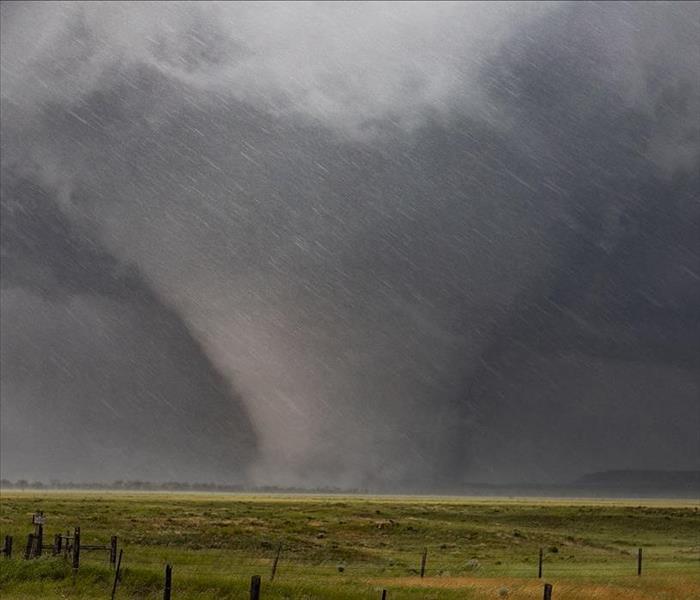Tornado Season
6/18/2019 (Permalink)
Knowing what to do when you see a tornado, or when you hear a tornado warning, can help protect you and your family. During a tornado, people face hazards from extremely high winds and risk of being struck by flying and falling objects. After a tornado, the wreckage left behind poses additional injury risks. The National Weather Service (NWS), Homeland Security and Emergency Management (HSEM), and the Centers for Disease Control and Prevention (CDC) provide excellent resources on staying safe during and after a tornado, below are some of the highlights.
Preparing for a Tornado
- Stay informed. Check the forecast regularly to see if you're at risk from tornadoes.
- Sign up for notifications. Learn how your community sends tornado warnings. Some communities have outdoor sirens and others send media alerts.
- Create a plan. Have a family plan that includes an emergency meeting space, such as a basement or storm cellar with no windows.
- Practice your plan. Practice your plan so that your family is prepared when a tornado strikes.
Stay Safe During a Tornado
- Stay informed. Continue to listen to local news or a Weather Radio to stay updated.
- If you are at home: Go to your basement, safe room, or room away from windows. Bring your pets with you.
- If you are at work or school: Follow the tornado drill and go to your tornado shelter quickly and calmly. Stay away from windows.
- If you are in a vehicle: Being in a vehicle during a tornado is not safe. Drive to the closest shelter if possible. If it is not possible, get down in your car and cover your head or seek shelter in a low lying area, such as a ditch or ravine.
- If you are outside: Being outside during a tornado is not safe. Seek shelter immediately. If it is not possible, get down in a low lying area, such as a ditch or ravine and cover your head.
After a Tornado
- Stay informed. Continue to listen to local news or a Weather Radio to stay updated.
- Contact family and loved ones. Save your phone calls for emergencies. Phone systems may be down after a disaster. Use text messaging or social media to communicate with family and loved ones.
- Assess the damage. Stay clear of fallen power lines or broken utility lines. Do not enter damaged buildings until you are told they are safe.
- Check for injuries. Do not attempt to move seriously injured people unless they are in immediate danger of further injury. Get medical assistance immediately.
- Be careful during clean-up. Wear thick-soled shoes, long pants, and work gloves.
SERVPRO of Bloomington/Pontiac Storm Damage Cleanup and Restoration






 24/7 Emergency Service
24/7 Emergency Service
